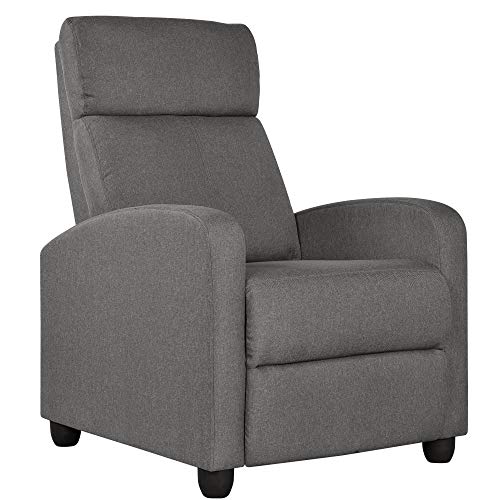Why Nursing Recliner Chair Isn't As Easy As You Imagine
The Nursing Recliner Chair: Comfort and Support in Patient Care
In the healthcare sector, patient comfort and nursing effectiveness are critical. Among the vital furniture pieces that bridge the space in between these 2 aspects is the nursing recliner chair. Designed particularly for healthcare environments, these chairs play a crucial function in enhancing the experience of both patients and caregivers. This Web page looks into the different functions, advantages, and considerations surrounding nursing recliner chairs, highlighting their significance in modern medical settings.
What is a Nursing Recliner Chair?
A nursing recliner chair is a specialized seating choice created to accommodate the needs of clients and nursing personnel. Unlike basic recliners, nursing recliners are crafted with functions that promote easy access, convenience throughout long hours of use, and mobility. These chairs can get used to multiple positions, allowing nurses to sit easily while offering care, administering medication, or engaging with clients in a soothing environment.
Key Features of Nursing Recliner Chairs
The nursing recliner chair comes equipped with numerous features that improve both comfort and functionality:
Adjustability: Most nursing recliners provide several reclining positions, allowing users to discover their most comfortable angle. This feature is particularly useful in environments where personnel might require to sit for prolonged durations while monitoring patients.
Long lasting Upholstery: The products used in nursing recliners are often easy to clean and resistant to discolorations, making them appropriate for health care settings where hygiene is vital.
Mobility: Many designs include wheels or casters, permitting caretakers to quickly move the chair from one place to another without lifting.
Footrests and Armrests: Integrated footrests and padded armrests supply additional support and comfort, crucial for easing pressure during long shifts.
Height Adjustability: Some nursing recliners are height-adjustable to accommodate different patient needs and to make the nursing personnel's tasks more accessible.
Stability Features: Many chairs included a robust frame and anti-tip features to ensure safety for both patients and caregivers.
Advantages of Nursing Recliner Chairs
The introduction of nursing recliner chairs into patient care environments yields numerous advantages:
Improved Patient Comfort: Creating a soothing and relaxing environment can assist lower patient anxiety, specifically in settings like medical facilities or long-lasting care facilities.
Boosted Caregiver Efficiency: By offering nurses a comfortable space to sit and offer care, these chairs enable more attentive monitoring without jeopardizing on their own comfort.
Flexibility: Designed for different care environments— such as healthcare facilities, rehabilitation centers, and assisted living home— the nursing recliner chair adapts to multiple settings and client needs.
Help with Interaction: By positioning caretakers closer to patients, nursing recliners help foster much better interaction and a more personal method to care.
Considerations When Choosing a Nursing Recliner Chair
When selecting a nursing recliner chair, several factors ought to be evaluated to guarantee suitability for the designated environment:
Space Requirements: Evaluate the readily available space in nursing stations, patient rooms, or waiting locations to determine the appropriate size and design of the chair.
Weight Capacity: It's necessary to choose chairs that can accommodate a variety of patient weights, making sure security and convenience for all people.
Ergonomics: Opt for chairs that support good posture and offer appropriate lumbar assistance to avoid pressure on nurses throughout prolonged use.
Fabric and Cleaning: Consider the ease of cleansing and upkeep when selecting upholstery, as healthcare settings need high standards of hygiene.
Budget: Nursing recliner chairs come at numerous price points, making it required to stabilize expense with features and resilience when making an acquiring choice.
Popular Types of Nursing Recliner Chairs
There are a number of types available, each dealing with specific requirements:
Type
Features
Ideal Use
Fundamental Recliner
Easy reclining system, resilient fabric
General client care
Lift Recliner
Power lift mechanism for easy patient gain access to
Clients with mobility difficulties
Geriatric Recliner
Larger seat, strengthened frame
Senior care settings
Pediatric Recliner
Smaller sized size, vibrant designs
Kid's hospital wards
Multi-Position Chair
Versatile reclining alternatives
Different client requires
FAQs About Nursing Recliner Chairs
1. How do I clean a nursing recliner chair?
Most nursing recliner chairs are made with upholstery that can be quickly cleaned down with disinfectant wipes. Always inspect the manufacturer's cleaning directions for particular guidance.
2. Are nursing recliner chairs personalized?
Lots of makers offer modification choices, consisting of upholstery option and extra features like footrests or lumbar support.
3. What is the typical expense of a nursing recliner chair?
Expenses for nursing recliner chairs can vary considerably based on features and brand name but normally fall in between ₤ 200 to ₤ 1,500.
4. Can nursing recliners be used outside of a medical setting?
Yes, while they are created with health care in mind, nursing recliners can likewise be utilized in home care settings, or for senior people who need convenience and ease of use.
5. For how long do nursing recliner chairs usually last?
With correct care and upkeep, a sound nursing recliner chair can last numerous years, often approximately a decade or more.
Nursing recliner chairs play a vital role in boosting patient care and comfort, along with supplying an encouraging space for nursing staff. With their specialized styles and multiple features, they perfectly satisfy the demands of healthcare settings. As medical facilities and care centers continue to focus on patient-centric care, the value of such furniture will become increasingly apparent. Buying premium nursing recliner chairs is not almost convenience but is also an action towards enhancing the total experience for patients and caretakers alike.
